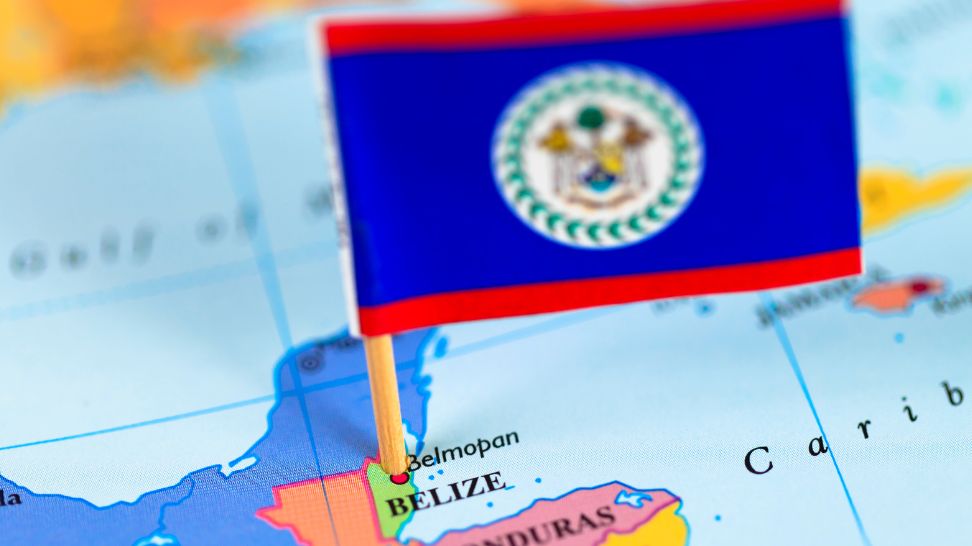The Cayman Islands is one of the leading jurisdictions for the formation and management of trusts. STAR Trusts are a special type of trust\authorized under the laws of the Cayman Islands. STAR Trusts have several different uses and features that set them apart from trusts in other jurisdictions. This article will discuss the main characteristics of STAR trusts and how they compare to other offshore asset protection trusts.
The Cayman Islands
The Cayman Islands are an overseas territory of the United Kingdom. The governor of the Cayman Islands is appointed by the U.K., and Cayman law is derived from English common law. The Cayman Islands has been a prominent jurisdiction for offshore trusts thanks to its political stability, modern, progressive legislation, and its well-developed and experienced court system. The Cayman Islands has no corporate, capital gains, income, profits, or withholdings taxes.
What is a STAR Trust?
In broad terms, a trust is a legal contract made by a settlor and a trustee which separates the legal and beneficial ownership of property. The settlor is the person who creates the trust by transferring assets to the trustee along with clear instructions that the assets should be held for the benefit of a third party. The legal ownership is then held by the trustee who manages the property on behalf of the beneficiaries. The trust agreement is made to safeguard, manage, and eventually distribute the trust property to the beneficiaries.
The laws of the Cayman Islands allow for a variety of different trusts, the most common of which are the STAR trusts. STAR Trusts get their name from the Special Trusts (Alternative Regime) Act of 1997. STAR Trusts can be utilized in a variety of contexts, including charitable and non-charitable purpose trusts, mixed trusts for purposes and persons, and perpetual trusts which can be non-charitable.
A key difference between STAR Trusts and other types of trusts is that the STAR Act states that beneficiaries of a STAR Trust have no rights to commence court proceedings to enforce the accountability of the trustees. Beneficiaries of STAR Trusts also lack rights to obtain information from the trusts. This unique feature of STAR Trusts makes them an excellent option for situations where the beneficiaries should not be aware of the trust holdings either for privacy or security concerns, or to avoid potential conflicts of interest.
Benefits of Cayman Islands STAR Trusts
The only persons who can enforce a STAR Trust under the law are “enforcers,” who are the persons expressly appointed under the trust document or by order of the court. Consequently, every STAR Trust must have at least one enforcer. There are no set criteria to qualify as an enforcer under the law. Enforcers may be individuals, a committee or a corporate entity and may be residents of any country.
The trustee of a STAR Trust must be either a trust corporation licensed under the Banks and Trust Companies Act or a private trust company registered under the Private Trust Companies Regulations of the Cayman Islands. Professional corporate trustees regulated by the Cayman Islands Monetary Authority (“CIMA”). This ensures STAR Trusts are properly managed by qualified and experienced trustees.
The main advantages of a STAR Trust are its flexibility and confidentiality. STAR Trusts can be used for a variety of purposes, such as preservation of wealth, succession planning, charitable giving, as well commercial and investment purposes. Is a STAR Trust right for your situation? Depending on what you are trying to accomplish, a Cayman Islands STAR Trust may or may not be the best option.
Drawbacks of Cayman Islands Trusts
As with many other types of offshore trusts, Cayman Islands Trusts do provide an element of asset protection. Asset protection refers to any legal arrangement or method used to protect assets from lawsuits, creditors, and other legal threats. When compared to other offshore jurisdictions, the laws of the Cayman Islands are not the most advantageous when it comes to asset protection purposes. If asset protection is a chief motivation for establishing an offshore trust, then your attorney should generally not recommend the Cayman Islands as a top choice.
Since the Cayman Islands laws state the settlor should have only a limited beneficial interest in the trust property, it does not allow the formation of self-settled trusts, this is when the person who makes the trust is also a beneficiary. The Cayman Islands also offers little protection when it comes to bankruptcy or foreign judgments. This is a crucial point since it means a Cayman Islands Trust might not be completely isolated from a court decision from outside the Cayman Islands, such as one issued by a court in the U.S.
Fortunately, several other offshore locations such as the island of Nevis, Belize, and the Cook Islands have specific laws in place that provide very strong asset protection to their trusts. The country where an offshore trust is established represents the legal home of the trust, it does not mean trust assets need to be sent to that location. Funds can be deposited and held in a bank account in Switzerland or nearly any other banking center.
Cook Islands Trust
If looking to protect wealth from future legal threats, a Cook Islands Asset Protection Trust is one of the most secure asset protection solutions available. The Cook Islands’ legal system is recognized as perhaps the most protective legal system in the world. Lawsuits or judgments from courts in the United States will not be able to reach a trust settled in the Cook Islands. In order to reach a Cook Islands Trust, the plaintiff must bring a lawsuit in the Cook Islands, which is a very expensive and challenging process.
When transferring assets to a Cook Islands Trust, there is a two-year statute of limitations for a creditor to bring an action against you or the trust. This is much more favorable than the six-year period required for Cayman Islands STAR trusts. In addition, the person bringing the lawsuit must prove beyond a reasonable doubt that assets were placed in a Cook Islands trust with the objective to defraud a particular creditor which is a higher standard of proof when compared to most other jurisdictions.
Nevis Trust
The island of Nevis has also gained a reputation for being one of the most favorable jurisdictions in the world for asset protection trusts and limited liability companies. Nevis Trust Legislation gives the grantor and beneficiaries protection from claims by putting considerable obstacles before potential plaintiffs. Nevis Trusts have a very strong track record of effective asset protection.
To start, a plaintiff must file a bond of $100,000 with the Nevis Ministry of Finance before bringing legal action against an international trust. Contingency attorney fees are prohibited in Nevis, which means the plaintiff will have to pay out of pocket for the court bond and any legal fees incurred. In Nevis, the standard of proof to succeed in civil cases is “beyond a reasonable doubt.” This is the highest standard in the common-law system and is the standard for U.S. criminal law.
Belize Trust
Belize is another county that provides a very high degree of protection, privacy, and flexibility to its offshore trusts. One of the factors that make Belize an outstanding jurisdiction for asset protection trusts is it offers immediate asset protection upon funding a trust.
Even in other great offshore asset protection locations, it generally takes two years from the date the assets were transferred to the trust to be safe from fraudulent transaction claims. Belize decided to exclude the application of its fraudulent transfer statute to international trusts established in the country. Thus, Belize is one of the few countries in the world that offers immediate asset protection.
Provided the trust was created for a lawful purpose and without intent to defraud, the courts in Belize will not consider claims of fraudulent conveyance. This makes Belize an optimal location when looking to get legal protection as soon as possible. In addition to its favorable trust laws, Belize has a streamlined trust formation process, and has low fees and taxes imposed on foreign trusts.
Tax Considerations
It is important to note that while, as stated above, the Cayman Islands imposes no income tax on its trusts, Cayman Islands Trusts are not a vehicle to reduce or avoid income taxes in the U.S. All offshore trusts, whether established in the Cayman Islands or any other foreign country, must be reported to the Internal Revenue Services on an annual basis for the duration of the trust. Failure to comply with these reporting requirements can carry very severe penalties. Always consult with a qualified accounting professional when evaluating the tax consequences of offshore bank accounts and legal entities.
Conclusion
The Cayman Islands is renowned as one of the world’s principal offshore jurisdictions and as an international financial center for investment funds. The Cayman Islands STAR Trusts provide numerous benefits thanks to its emphasis on privacy, strong legal tradition, and flexibility. As an asset protection destination, however, the Cayman Islands leaves much to be desired and is easily surpassed by other jurisdictions.
If you are considering a Cayman Islands STAR Trust, think about whether a different location might make more sense for your goals and needs. If potential future lawsuits are a concern, places such as Nevis, Belize, or the Cook Islands can offer considerable advantages in term of legal asset protection. If you are unsure about what might be best for you, an experienced asset protection attorney can help you make the best choices for your situation so that your wealth is best protected.
If you would like more information regarding Cayman Islands STAR Trusts, or asset protection trusts established in other popular offshore jurisdictions such as Nevis, Belize, or the Cook Islands, contact our experienced team at Blake Harris Law. You can begin the process of creating your asset protection plan with a consultation offered at no cost. Email us at Info@BlakeHarrisLaw or fill out our contact us form.






